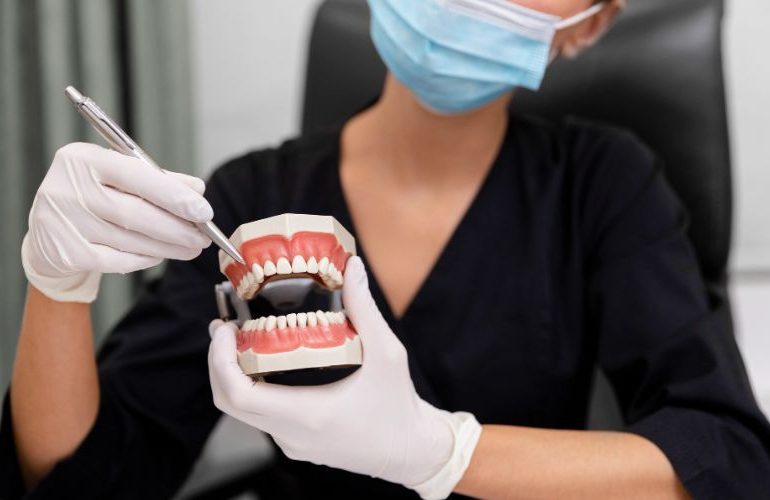Dentures are a popular option for those who have lost some or all of their teeth, as they can restore functionality and improve one’s appearance. However, over time, changes in the mouth can cause dentures to become loose and uncomfortable. This is where denture relining comes in.
Denture relining is the process of adding material to the base of a denture to improve its fit. There are two types of relining: hard and soft. Hard relining involves adding a hard, durable material to the base of the denture, while soft relining involves adding a soft, pliable material.
So, when should you get your dentures relined? Here are some signs to look out for:
- Sore spots: If you are experiencing sore spots in your mouth, it may be a sign that your dentures are not fitting properly. This can be due to changes in the bone structure of your mouth, which can occur over time.
- Slipping or moving dentures: If your dentures are slipping or moving around in your mouth, it can be a sign that they are not fitting properly. This can make it difficult to eat, speak, or even smile with confidence.
- Changes in weight: If you have experienced significant weight loss or gain, it can affect the fit of your dentures. This is because changes in weight can cause changes in the shape of the gums and bone structure in the mouth.
- Changes in facial structure: As we age, our facial structure can change, which can affect the fit of our dentures. This can be due to bone loss or changes in the muscles and tissues of the face.
- Wear and tear: Over time, dentures can become worn down, which can affect their fit and function. If your dentures are showing signs of wear and tear, it may be time to consider a reline.
In general, it is recommended that you get your dentures relined every two to three years, or as needed based on the signs listed above. It is important to work with a qualified dentist or denturist to ensure that your dentures fit properly and are comfortable to wear.
In conclusion, if you are experiencing any of the signs listed above, it may be time to consider a denture reline. Regular check-ups with your dentist or denturist can help identify any changes in the mouth and ensure that your dentures are fitting properly. With the right care and maintenance, dentures can provide a comfortable and functional solution for those who have lost their natural teeth.
FAQs
It is recommended that you get your dentures relined every two to three years, or as needed based on changes in your mouth, such as weight loss or gain, changes in facial structure, or wear and tear on the dentures.
If you are experiencing sore spots in your mouth, slipping or moving dentures, changes in weight or facial structure, or wear and tear on the dentures, it may be time to consider a denture reline.
It is not recommended to reline your dentures at home as it requires specialized equipment and expertise. It is best to work with a qualified dentist or denturist to ensure that your dentures are fitting properly and comfortably. They can also provide guidance on the type of relining (hard or soft) that is best for your individual needs.




